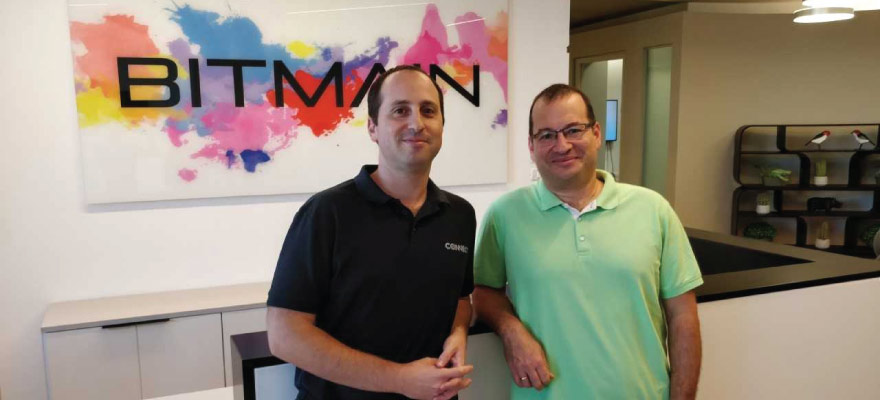Finance Magnates recently visited the office of Bitmain Israel in Ra’anana.
Chinese cryptocurrency mining Bitmain opened its Israeli branch in after founders Jihan Wu and Micree Zhan visited the country. “They saw 30 startups in 3 days and decided that it was very interesting what is happening in Israel and that they need boots on the ground,” said Gadi Glikberg, Bitmain VP International Sales and Marketing.
The branch has two purposes: it manages a mining pool called Connect BTC, and is a development hub aiding Bitmain’s AI ambitions.
Connect BTC mines Bitcoin and . We asked Glikberg about the pool’s policy regarding the two competing coins, and he stressed that it is the miners that decide what they mine. Bitcoin Cash was added to their options because it can be mined using the same machines that mine Bitcoin.
Users of the pool can choose the ‘automatic’ option, which means that their machines will mine the most profitable coin at that time. The pool also displays detailed performance statistics.
He said that the Israeli pool’s marketing budget is set to rise significantly in the near future.
According to at statistics published on btc.com, ConnectBTC users tend to prefer Bitcoin to Bitcoin Cash; in the last six months, the pool has mined 0.14 percent of the former and 0.04 percent of the latter.
Interestingly, when asked about the location of Connect BTC miners, Glikberg said that the pool doesn’t accept Israelis.
Security concerns
We asked about hacking concerns. Glikberg said: “It’s an issue. At the end of the day, wherever there is cryptocurrency there is an issue of hacks. It’s not something that was invented with cryptocurrency, people also hack banks and steal lots of money – people just talk about it less because it’s less interesting, less sexy.”
Bitmain’s mining operations control around 48 percent of all Bitcoin mining. As we have reported in the past, this raises worries of a . Glikberg expressed his opinion that this is not a cause for concern: “Bitcoin is not susceptible to a 51 percent attack because of the amount of dedicated hardware. If someone has laid out such a large amount of money on such a large amount of hardware, executing a 51 percent attack which will only lower the value of the coin is like throwing your investment away.”
He added: “Security is always a a game of cat and mouse. There is never 100 percent security, and if someone says that there is they apparently are just not seeing the gaps.” The bottom line though, he said, is that the while pool may ‘roll’ a lot of money over, it doesn’t hold large amounts itself.
We asked if the company keeps its money in cold storage, but Glikberg said that he prefers not to answer that.
AI and algorithms
The mining pool is “just business”, according to Glikberg. The main purpose of the centre is . Specifically, the Israel team supports with an algorithm development team, working on things such as image capturing and recognition. Glikberg said that this is an expanding market which he expects to become a major one.
Notably, there is an entire wing of the office which is currently unoccupied, earmarked for future employees, of which the branch currently has 21. The team aims for 30 by the end of the year, and hopes to continue growing next year too.
Mining equipment sales
We asked Glikberg how ASIC device sales are responding to Bitcoin’s lower price and higher difficulty.
“There is an influence on the unit sales. We sell the units according to their profitability, that is, according to the difficulty of the mining and according to the price of the coin. And so of course the price of the coin influences the price at which the units will be sold,” he said. “But where there is money, the market will find a way to perfect itself, and I believe that this market still has a lot of room to grow.”
We asked the team about how they deal with customer complaints; they said that no such situation has occurred, because everything is completely transparent and miners can immediately switch to a different pool if they aren’t happy.
Finally, we asked about how they deal with Israeli financial regulation. Glikberg said: “We have to report our income like every other company. We are only a service provider, so we don’t go into more complicated regulation.”





Be First to Comment